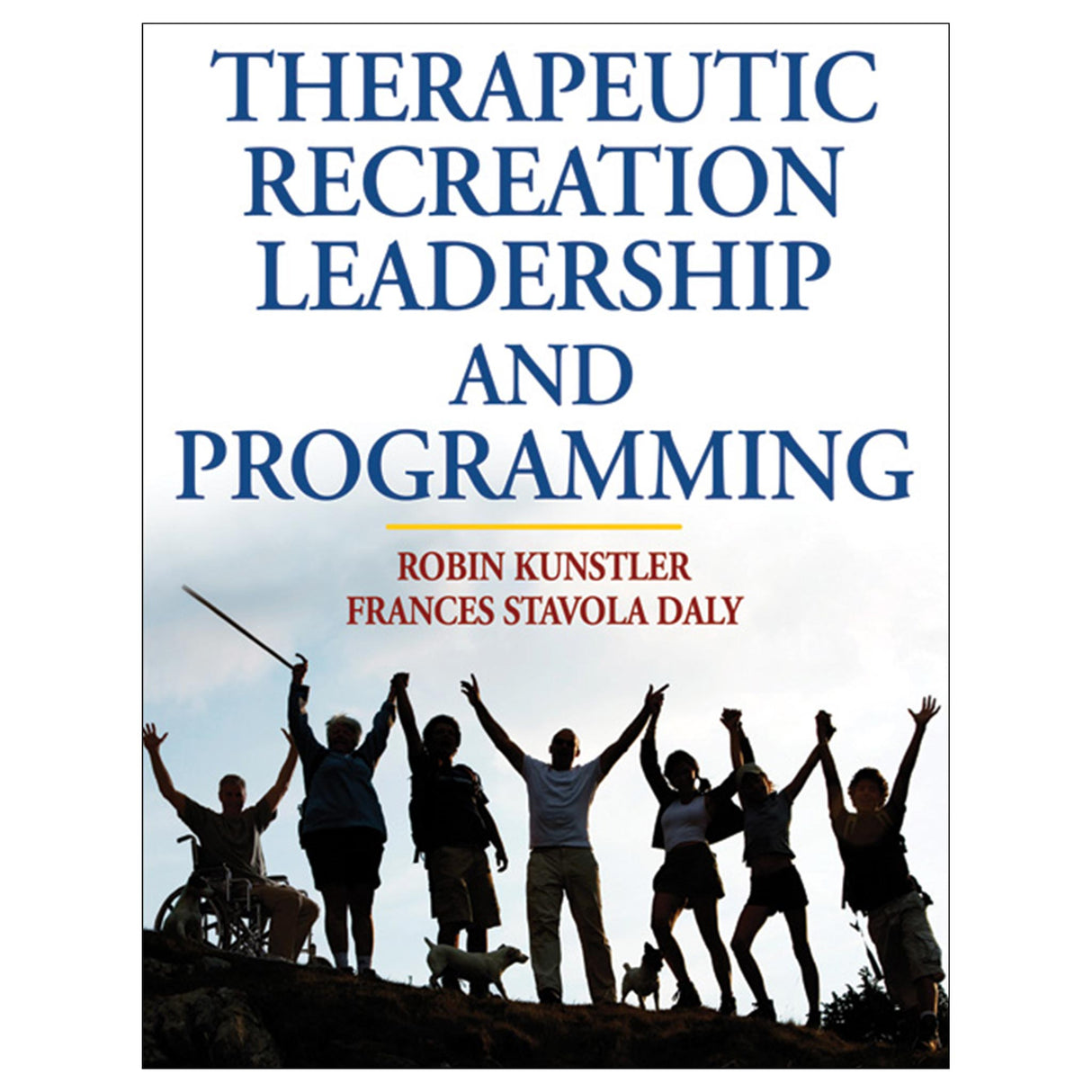Therapeutic Recreation Leadership and Programming
Author: Robin Kunstler, Frances Stavola Daly
$49.00 CAD
Therapeutic Recreation Leadership and Programming will help students learn the essential aspects of professional practice while developing a leadership mind-set. The book focuses on the day-to-day responsibilities of the therapeutic recreation specialist (TRS) while integrating ethical considerations into each aspect of the job. Readers will learn how to perform the daily work of a TRS while maintaining the highest ethical standards of the profession. The book details
· the principles, theories, and codes of ethics that will form the foundation of specialists’ understanding of the field and set the stage for practice;
· the knowledge, skills, and leadership principles that TRSs will need in order to help their clients accomplish therapeutic outcomes;
· strategies that will guide TRSs in planning a wide range of programs and services, including information on frequently encountered health problems, major program areas, facilitation strategies, and client and program evaluation; and
· methods for program organization and delivery that will prepare specialists to offer a regular schedule of therapeutic recreation programs that meet the needs of all of their clients, whether in group or individual settings.
The book will arm students with the information and tools they need in order to succeed as therapeutic recreation specialists. It familiarizes students with their future clients by describing the health concerns most often encountered in therapeutic settings. Case studies for the most common concerns provide students with concrete examples of how programming works in various clinical settings. The book also provides specific recreation activities from five major program areas, along with information on the effectiveness of the activities, risk management concerns, and implementation strategies. Step-by-step instructions for structuring, planning, and leading both group and one-on-one sessions will prepare students to implement programs in a wide variety of settings.
Stories from professionals in the field, examples of real and hypothetical clients, and case studies show students how to use the principles they’ve learned when leading programs. Learning activities help them to further explore the concepts in each chapter, and highlight boxes emphasize key ideas related to each chapter’s content. An instructor guide is available to course adopters at www.HumanKinetics.com/TherapeuticRecreationLeadershipandProgramming.
Audience
Textbook for courses in leadership and programming in therapeutic recreation; reference for entry-level professionals or those who want a new perspective on leadership and programming.
Preface
Acknowledgments
Part I: Establishing a Foundation for Ethical Practice
Chapter 1: A Mindset for Ethical Therapeutic Recreation Leadership
Chapter 2: Therapeutic Recreation Principles, Values, and Practice Models
Chapter 3: Program Planning Approaches and the Therapeutic Recreation Process
Chapter 4: The Blended Role of Therapeutic Recreation Leadership
Part II: Creating the Structure of Therapeutic Recreation Practice
Chapter 5: Common Concerns of Therapeutic Recreation Practice
Chapter 6: The Therapeutic Recreation Toolkit: Programs, Benefits, and Implementations
Chapter 7: Therapeutic Recreation Leadership: Strategies for Growth and Learning
Chapter 8: Evaluation of Practitioners, Programs, and Participants
Part III: Applications of Therapeutic Recreation Leadership
Chapter 9: Unit-Wide Programming
Chapter 10: Leading Therapeutic Recreation Groups
Chapter 11: One-to-One Therapeutic Recreation Service
Chapter 12: Therapeutic Recreation Leadership for the 21st Century
Appendix A NTRS Codes of Ethics
Appendix B ATRA Code of Ethics
Appendix C NTRS Standards of Practice
Appendix D ATRA Standards for the Practice of Therapeutic Recreation
Appendix E NCTRC Job Analysis
Appendix F NRPA Policy Statement on Inclusion
References
About the Authors
Delivering high-quality leadership in TR group programs
First step of TR process forms foundation for individual plan
Integrating the therapist and recreation specialist
Selecting activities to improve current functioning, develop skills, and utilize strengths
Instructor guide. The instructor guide contains a sample course syllabus, learning outcomes, teaching tips, glossary handouts, and learning assignments that will help students apply the information in the text and provide a starting point for small-group discussion. A list of Web resources provides additional opportunities to explore the concepts covered in each chapter. The instructor guide also includes select tables and figures from the text that can be used in PowerPoint presentations, transparencies, or handouts.





